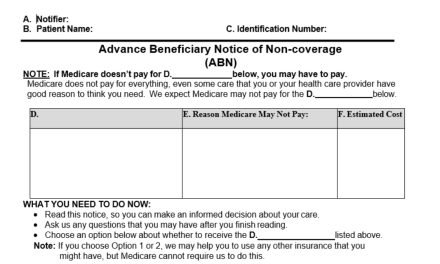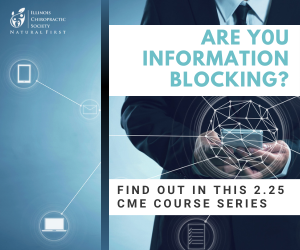
Getting Naked – A New Approach to Customer Service?

I have no doubt that the title of this article caught your attention. It certainly caught the attention of our team last month when they were assigned to read the book Getting Naked by Patrick Lencioni as part of their monthly personal and professional development. As one of our team members shared, “Things are about to get uncomfortable.” She meant it as a joke, but as the team discussed the book, they learned that she wasn’t far off the mark.
In this book, Patrick Lencioni describes an unconventional approach to improving customer loyalty: vulnerability. The book, a business fable, illustrates the three fears that truly sabotage our success and prevent us from developing customer (or patient) loyalty. Although we can all relate to each of the three fears, each person on our team could quickly identify which fear resonated the most in their own life.
The Fear of Losing Business.
This is a fear that we can all relate to. What I hadn’t realized was that my fear of losing business was getting in the way of new opportunities. Ultimately, it enabled me to continue avoiding difficult issues or problems within my practice. One of the best lessons from the book teaches that we need to be focused on helping our patients, versus looking at them as a revenue source. Whether we want to admit it or not (and we don’t), we can find ourselves making recommendations based on what insurance covers and not necessarily what our patients need.
One example of this is not recommending therapy to Medicare patients because it is a non-covered service. I’ve heard it said before that the moment you want the care for the patient more than they do, you’ve lost your credibility, and they may sense desperation. Recommend the best care, all the care you truly feel they need from a clinical perspective, and let them choose to move forward, or be willing to dismiss them. That takes guts, especially when you need to pay the bills, but it will make you more confident in your recommendations and send a clear message that you won’t play “Let’s Make a Deal” with their care plans.
Fear of Being Embarrassed.
One of our long-time team members surprised us when she stated this was her biggest fear. She is often asked her opinion inside and outside of our organization and is terrified that she will say something wrong or have a terrible idea and look bad in front of others. This fear is about wanting to be viewed as intelligent and not wanting to appear ignorant. Patrick Lencioni says that “naked” service providers admit when they don’t know something. They celebrate errors because protecting their egos is not as important as helping others.
While discussing this fear, this same team member finally acknowledged that some of the best ideas we have implemented as a company have come from some of the craziest ideas and suggestions from our team. These ideas created invaluable solutions when re-evaluated in the right light. Not all ideas are necessarily good ones, but there is always something to be learned from them. As recently as last week, I offered up an idea and our team shot it down. They were right, of course, so to save face I simply said, “I said it was an idea, not a GOOD idea!” That’s hard to do, but I’ve learned its healthy to have your team members not fear retribution from the “Boss.”
Fear of Feeling Inferior.
This fear is one with which, for some reason, our profession appears to struggle. I have been involved with the medical community for years, and my practice is on the campus of a spine center. I’ve served as the Staff Chiropractor at the VA Medical Center. I’ve had the opportunity to lecture to pain management residents and neurosurgery residents at the University Medical Center. I have come face to face with feeling inferior many times, and here is what I learned: WE underestimate ourselves. Our training and knowledge are on par or above many specialties when it comes to neuromusculoskeletal diagnosis and treatment. To combat feeling inferior, we shouldn’t project superior intellectual pride, but we should project confidence and competence to our patients and other health care providers.
Each fear discussed in Lencioni’s book is accompanied by lessons on how to overcome that fear. These lessons can show you how to help your patients and grow your practice. Although this book was not written for healthcare professionals, it can easily be adapted to your practice with a little thought and effort. For example, referring to the fear of losing business, one of the principles says to “give away the business.” Don’t literally donate your practice but be willing to share your knowledge and expertise.
As one of the most regulated systems in our country, we cannot give free or discounted services to our patients. That would be an inducement violation. However, there are other things that we can do. A good friend of mine told me he frequently gives talks around his community about ways to treat common injuries, such as sprains and strains, at home. He has videos that show stretches, talk about when to use heat and ice, and always let his audience know to see their healthcare providers if a condition becomes worse or doesn’t improve after a few days. By showing his community how to treat themselves at home, he receives tons of referrals to his practice from patients who heard him speak or saw his videos.
Getting Naked is about embracing vulnerability, which is far more complicated than one would think. Focusing on the takeaways in this book and adopting a sense of selflessness in every encounter with your friends, family, colleagues, employees, and patients, has the potential to dramatically improve all areas of your life, both personally and professionally. I encourage you to read or download the book today and start your journey to “Getting Naked.”
Dr. Ray Foxworth is a certified Medical Compliance Specialist and President of ChiroHealthUSA. A practicing Chiropractor, he remains “in the trenches” facing challenges with billing, coding, documentation and compliance. He has served as president of the Mississippi Chiropractic Association, former Staff Chiropractor at the G.V. Sonny Montgomery VA Medical Center and is a Fellow of the International College of Chiropractic. You can contact Dr. Foxworth at 1-888-719-9990, info@chirohealthusa.com or visit the ChiroHealthUSA website at www.chirohealthusa.com. Join us for a free webinar that will give you all the details about how a DMPO can help you practice with more peace of mind. Go to www.chirohealthusa.com to register today.



















